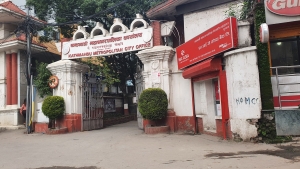Nepal is expected to receive Rs 1.6 billion next month under an agreement with the World Bank for carbon trading, as part of a long-term agreement to offset global carbon emissions.
The funds, tied to carbon storage in the forests of 13 districts in the Terai region, reflect Nepal’s contribution to offset carbon emissions for its corporate or sovereign partners between 2018 and 2024.
The carbon trading initiative is part of the Terai Arc Landscape Program, where Nepal successfully stored 2.4 million tons of carbon across 1.7 million hectares of forest. The program has been conducted in 13 districts, from the Bagmati to Mahakali Rivers, contributing significantly to global carbon emission reductions.
Badriraj Dhungana, spokesperson for the Ministry of Forestry and Environment, noted that legal clarifications are being finalized to ensure the funds are transferred correctly through Nepal’s financial channels. Of the total amount, 80% will be directed to benefit local indigenous communities, ensuring that they are the primary beneficiaries of the carbon trade.
Since 2018, Nepal has implemented its National REDD+ Strategy, which focuses on reducing emissions from deforestation and forest degradation, conserving forest carbon, and enhancing carbon storage through sustainable management practices. The program aims to continue reducing emissions via the Terai region until 2028.
In addition, Nepal is set to expand its carbon trading activities through an international platform known as the LEAF Coalition, which brings together 26 private companies and sovereign states. Nepal is expected to sign a new agreement at the 29th International Climate Conference in Azerbaijan this November, targeting the storage of 7 million tons of carbon by 2028 across forests in Bagmati, Gandaki, and Lumbini provinces.
For this initiative, Nepal is expected to receive $100 million, with carbon priced at $25 per ton for private companies and $10 per ton for sovereign nations.





